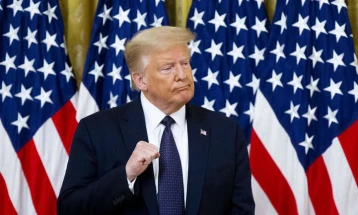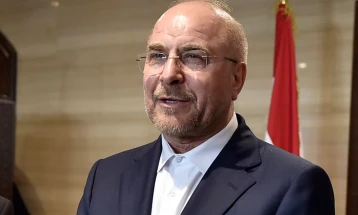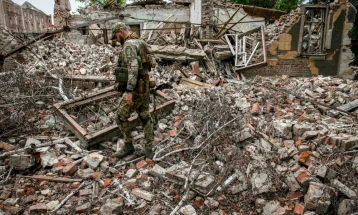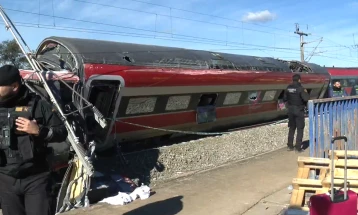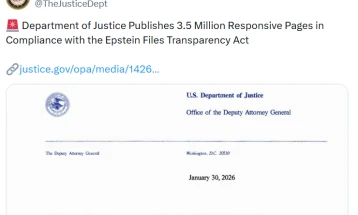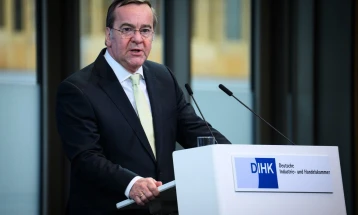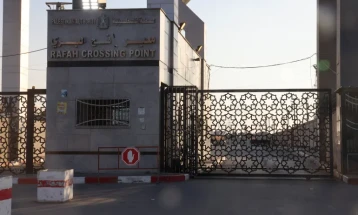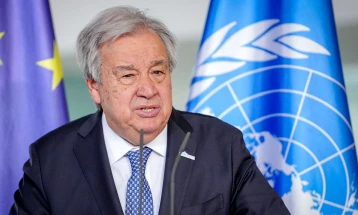Amid probe, Austria's Kurz hopes for continuation of ruling coalition
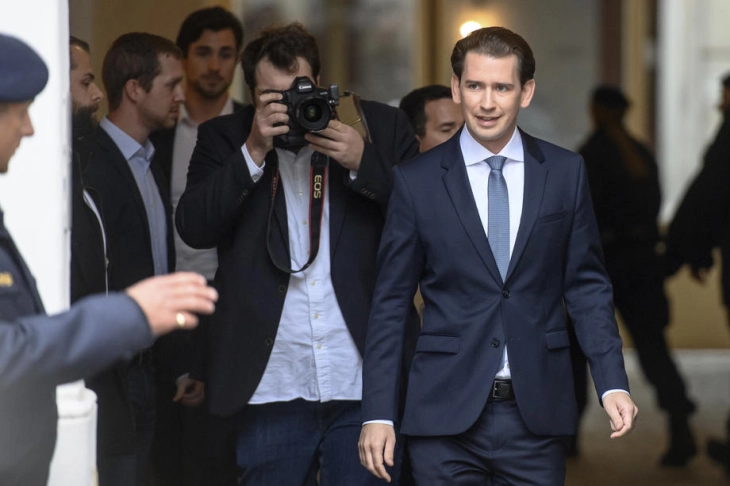
Vienna, 7 October 2021 (dpa/MIA) - A corruption probe targeting the office of Austria's conservative chancellor, Sebastian Kurz, has triggered a crisis in his governing coalition with the Greens.
"We cannot go back to business as usual; The chancellor's ability to act is in question," Greens lawmaker and Vice Chancellor Werner Kogler said in a statement on Thursday.
"I hope that we will continue to have stable conditions in our country," Kurz told journalists, placing the ball in the Greens' court. "So if the Greens no longer want to continue this cooperation and want to look for other majorities in parliament, then that has to be accepted."
Green politicians had signalled that they would continue cooperation with the conservatives if Kurz withdrew. But ministers in the government from Kurz's Austrian People's Party (OeVP) rejected that plan.
"There will only be OeVP participation in this federal government with Sebastian Kurz at the helm," they stressed in a joint statement.
On Tuesday, a special session of the National Council is planned, in which the opposition wants to introduce a motion of no confidence in Kurz.
Anti-corruption investigators seeking materials for a probe searched the offices of Kurz and the OeVP as well as the Ministry of Finance and a media house on Wednesday.
According to the Economic and Corruption Prosecutor's Office (WKSTA), there are indications that, from April 2016 onwards, funds from the Ministry of Finance were used to publish "exclusively party-politically motivated, sometimes manipulated polls by an opinion research company" in the interest of Kurz, who was then foreign minister.
The prosecution's suspicion against the chancellor himself is clearly formulated: "Sebastian Kurz is the central person: all acts of crime are committed primarily in his interest," the search warrant states.
All those involved "had to subordinate themselves to the overriding goal - to lead him to the position of party chairman and subsequently chancellor and to secure this position thereafter", according to the investigators.
Kurz's rise is closely linked to his small team of absolutely loyal confidants. The "family," as they called themselves in the chats that surfaced, consists of the circle now under investigation, as well as a few other loyalists.
"It is devastating," Kogler said. The leader of the Greens announced talks with all parties in parliament and with Austria President Alexander Van der Bellen.
Van der Bellen will meet the heads of all parliamentary parties on Thursday and Friday, the presidential chancellery told the Austrian news agency APA.
The meetings are expected to start on Thursday with Kogler and Kurz. Later, Social Democrat (SPOe) leader Pamela Rendi-Wagner is to join Van der Bellen.
On Friday, the head of the liberal Neos party, Beate Meinl-Reisinger, and the far-right FPOe leader, Herbert Kickl are expected to follow.
"We have to work together for stability and clarification, and that is why I would like to discuss the further course of action cross-party," Greens leader Kogler said.
Meinl-Reisinger on Thursday called for a new start for the country. "It can't go on like this," the Neos party leader said, adding the country needs a clean government and new elections were not necessary for this.
The day before, the opposition parties in parliament - Neos, the Social Democrats and the Freedom Party of Austria (FPOe) - had demanded Kurz's resignation.
Meinl-Reisinger said Kurz was harming the country with his refusal to resign. "There is a clear incapacity of Kurz to hold office," the Neos leader continued.
Kurz on Wednesday said any suspicion of corruption related to his rise to power is unfounded. Kurz had made it clear in a TV interview on Wednesday evening that he was not thinking of resigning.
The chancellor can count on the support of the provincial leaders of his party after nine OeVP state chairpersons backed him in a joint statement on Thursday.
"The proceedings are only at the beginning, the 10 accused have not even been questioned yet," says political scientist Peter Filzmaier. This threatens to lead to years of discussion about whether the head of government was guilty or not. An intensified polarization of society is already foreseeable, he says.
The accusations of manipulated and embellished polls are also not letting the industry rest. The Association of Chief Editors stated: "The conditions described in the judicial documents are unethical, immoral and reprehensible. Media consumers have been deceived by this, the reputation of the media industry has been damaged," they stressed in a joint statement on Thursday.
There is no editorial service in return for advertisements, they stressed. In fact, most media companies have red lines and a strict separation between editorial and advertising departments.
